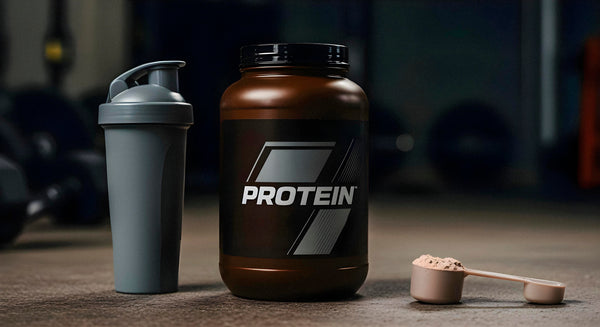How Creatine Helps You Gain Muscle and Strength
In the world of fitness and bodybuilding, few supplements have garnered as much scientific backing and real-world success as creatine. For anyone asking does creatine build muscle, the answer is a resounding yes – and the evidence is compelling. This powerhouse supplement has revolutionized how athletes and fitness enthusiasts approach muscle gain and strength development.
What is Creatine?
Creatine is a naturally occurring compound found in muscle cells, playing a crucial role in energy production and muscle function. Your body produces about 1-2 grams of creatine daily in the liver, kidneys, and pancreas. Additionally, you obtain creatine through dietary sources, primarily meat and fish. However, to maximize its muscle-building potential, supplementation can help bridge the gap between natural production and optimal levels for muscle growth.
When it comes to which creatine is best for muscle gain, creatine monohydrate consistently proves to be the most effective and well-researched form. It's not only the most studied but also the most affordable and reliable option for those seeking to enhance their muscle-building journey.
The Science Behind How Creatine Builds Muscle
The question of do creatine builds muscle can be answered by understanding its multiple mechanisms of action. Creatine works through several pathways to enhance muscle growth and strength:
Enhanced Energy Production and Performance
Creatine's fundamental role in the body centers on enhancing phosphocreatine stores, which play a crucial role in ATP production – the primary energy currency that powers your muscles during physical activity.[NIH] By elevating these phosphocreatine levels, creatine supplementation directly supports your body's ability to generate ATP quickly and efficiently, particularly during high-intensity exercises. This enhanced energy availability enables you to maintain higher levels of performance throughout your workouts, allowing you to push through more challenging sets and repetitions. When you're able to train with greater intensity, your muscles experience increased fiber recruitment, meaning more muscle fibers are engaged and stimulated during each exercise. This heightened muscle fiber activation, combined with the improved energy systems, creates an optimal environment for muscle growth and development, ultimately translating into greater potential for muscle hypertrophy.
Cellular Hydration and Growth Signals
One of the key ways creatine muscle gain occurs is through its remarkable effect on cellular hydration. [NIH] When creatine is present in the body, it actively draws water into muscle cells through a process called osmosis, creating what's known as a cell volumizing effect. This increased cellular hydration establishes an optimal anabolic environment within the muscle tissue, which directly stimulates protein synthesis – the biological process responsible for building new muscle proteins. The enhanced cellular volume not only contributes to a visibly fuller muscle appearance but also activates crucial signaling pathways within the muscle cells. These activated pathways serve as molecular triggers that further enhance the muscle-building process, making creatine supplementation an effective strategy for supporting muscle growth and development.
Fast-Twitch Muscle Fiber Enhancement
Creatine demonstrates a particularly notable impact on fast-twitch muscle fibers, which are the specific muscle fiber types that hold the greatest capacity for developing size and strength gains. Through its mechanism of action, creatine enhances the energy systems within these fast-twitch fibers, enabling them to perform at higher intensities during training sessions. This enhanced functionality of fast-twitch fibers translates directly into improved force production during explosive movements and heavy resistance training, such as when performing power lifts or sprint-based activities. By optimizing the performance capabilities of these crucial muscle fibers, creatine supplementation helps athletes and fitness enthusiasts maximize their potential for strength development and muscle growth during intense training sessions.
Hormonal Benefits and Growth Factors
Creatine supplementation has been shown to create a favorable hormonal environment for muscle growth by influencing key factors in the muscle-building process. Creatine can elevate levels of IGF-1 (Insulin-like Growth Factor 1), a crucial hormone that plays a significant role in muscle development and recovery, while simultaneously reducing myostatin, a protein that naturally inhibits muscle growth. [NIH] This dual action creates an optimized hormonal environment that enhances the body's ability to build and maintain muscle mass. The synergistic effect of increased IGF-1 and decreased myostatin levels helps explain why individuals who consistently supplement with creatine often achieve superior muscle gains compared to those who don't incorporate creatine into their supplement regimen.
Muscle Preservation and Recovery
Creatine's benefits extend beyond its well-known role in muscle building, as it plays a crucial role in protecting existing muscle tissue by minimizing protein breakdown during intense training periods. [NIH] Through its cellular mechanisms, creatine actively supports muscle preservation by maintaining a positive protein balance within muscle cells, while simultaneously enhancing the body's natural recovery processes. Additionally, creatine has been shown to accelerate post-workout recovery by supporting cellular repair mechanisms and helping to reduce exercise-induced inflammation, allowing athletes to return to training more quickly and effectively.
Satellite Cell Activation
Creatine supplementation enhances satellite cell activity – crucial for muscle repair and growth. [NIH] These cells serve as muscle stem cells, helping to create new muscle tissue and repair damaged fibers after intense training sessions.
Long-Term Muscle Density Improvements
While initial gains may partly come from increased water retention, long-term creatine use leads to genuine increases in muscle density and quality. [NIH] This occurs through improved training capacity and enhanced muscle protein synthesis over time.
Practical Applications and Recommendations
To maximize creatine muscle gain, consistency is key. Most research supports taking 5 grams of creatine monohydrate daily. While some advocate for a loading phase of 20 grams per day for 5-7 days, this isn't strictly necessary – you'll reach optimal levels eventually through consistent daily use.
For best results, combine creatine supplementation with:
- Regular resistance training
- Adequate protein intake (1.6-2.2g per kg of body weight)
- Proper hydration
- Sufficient rest and recovery
Conclusion
The evidence clearly shows that creatine is one of the most effective supplements for building muscle and strength. It works through multiple pathways to enhance muscle growth, improve performance, and accelerate recovery. Whether you're a competitive athlete or simply looking to build more muscle, creatine supplementation, when combined with proper training and nutrition, can significantly enhance your results.
Remember, while creatine is highly effective, it's not a magic bullet. The best results come from combining creatine supplementation with consistent training, proper nutrition, and adequate rest. If you've been wondering whether creatine can help you build muscle, the science strongly suggests it can be a valuable tool in your muscle-building arsenal.

























